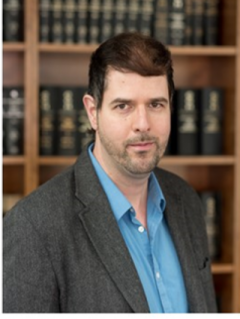Professor David Sabatino joins Chemistry

Professor David Sabatino joins the Department of Chemistry from Seton Hall University in New Jersey
Professor Sabatino completed his Ph.D. at McGill University, before joining the University of Montreal as a post-doctoral fellow. He has been awarded the D.W. Ambridge Award in Chemistry for his outstanding doctoral thesis in the Faculties of Sciences and Engineering, and the Carl A. Winkler Award in Chemistry, also for an outstanding doctoral thesis in the Department of Chemistry at McGill University. We are extremely pleased to have Professor David Sabatino join us in the Department of Chemistry!
Q: Tell us about what initially interested you about Carleton University and why you wanted to join the Department of Chemistry
A: A faculty position at Carleton University presents an exciting new opportunity for realizing the translational potential of our teaching and research program. The newly released strategic integrated plan documents an innovative strategy that fosters knowledge building, community engagement and wellness. This approach is perfectly aligned with my academic mission, which aims to innovate an inclusive teaching and research program that will be impactful and sustainable, while providing the important research tools for our students for solving our global problems, establishing policy, and providing a better quality of life for all. I’m excited to join the stellar cast of students, faculty, and administrators at Carleton University to help share our knowledge, and to help shape the future of our student servant leaders.
The Department of Chemistry at Carleton University provides outstanding undergraduate and graduate educational programs and collaborative research. The Departmental teaching and research strengths in molecules, materials and nanoscience for sustainability as well as developing new technologies for preserving human and ecosystem health correlate seamlessly with my academic plan. I am confident these complementary interests will serve to facilitate my integration and collaboration with the existing faculty and students within the Department, while creating exciting new opportunities to establish partnerships across departments and institutions.
Q: Would you mind explaining your research, and what students should expect when working in your labs?
A: My research interests span the areas of nucleic acid and peptide chemical biology. My lab focuses on developing innovative bio-organic chemistry methods to produce synthetic biologicals for drug discovery applications. More specifically, my research aims to explore the influence of structural modification on the anti-cancer activity of biological molecules. My biological targets serve as useful tools for exploring structure-activity relationships and improving their therapeutic potential for applications in the treatment of cancer. My research approach is multidisciplinary and collaborative, combining elements of chemical synthesis for development of synthetic biologicals and their structural mimics, bioanalyses for evaluation of molecular structure and sequence information, molecular cell biology and in vivo testing for screening therapeutic potential and translational biomedical research for establishing clinical utility. Therefore, my research program within the Department of Chemistry at Carleton University will be broadly related to the development of a successful anti-cancer research program with faculty, students, and leading scientists across our campus and beyond.
Q: What are you looking forward to about the courses you will teach in the future/lab work?
A: Teaching lecture and lab courses is a pleasant and productive personal experience, as it welcomes excellent students into my lab for research. Moving forward, I am interested in teaching lecture and lab courses at the interface of Chemistry and Biology to majors and non-majors at the undergraduate and graduate levels. The Department of Chemistry at Carleton University offers several undergraduate courses that I would be equally enthusiastic and well-equipped to instruct and mentor students in both official Canadian languages of French and English. I am also excited about the opportunity of participating in the Ottawa-Carleton Chemistry Institute, to work closely with faculty and students across institutions on the successful implementation of graduate programs and course offerings. I am thrilled to work with all of you to help enhance the student experience in these important integrative programs that will help facilitate student job placement within the local scientific community.